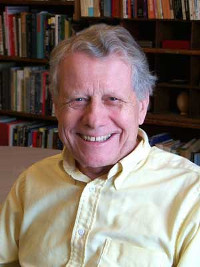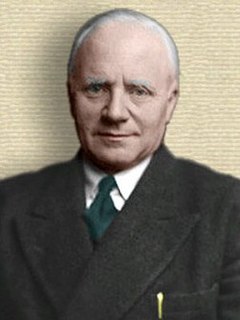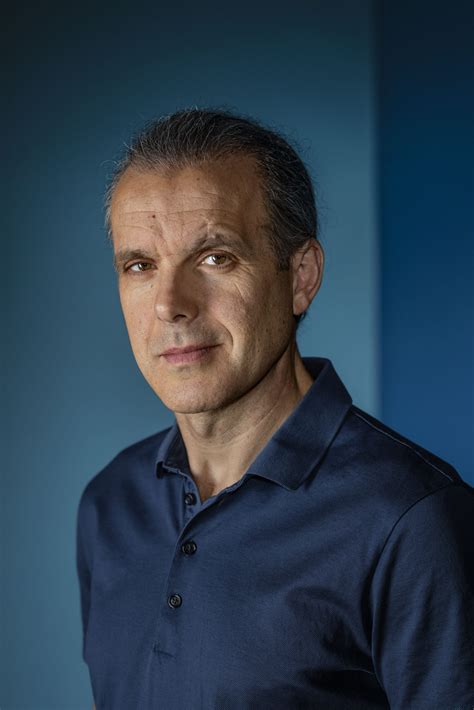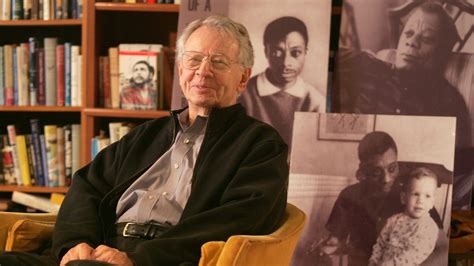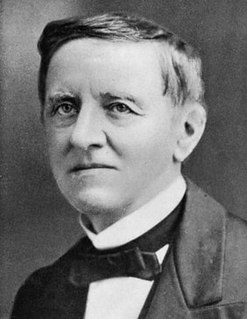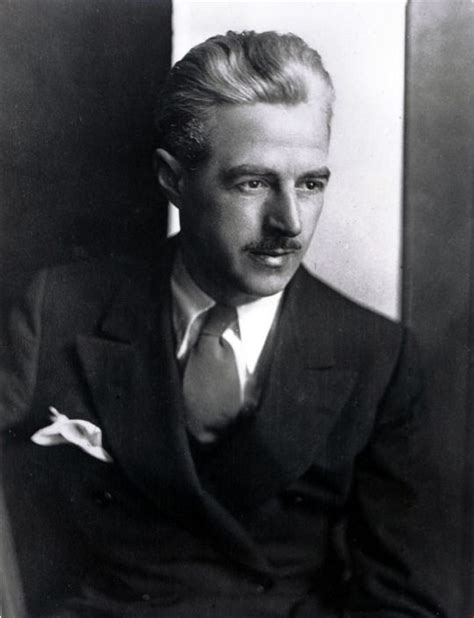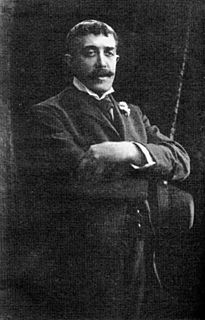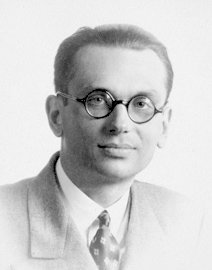Top 413 Precision Quotes & Sayings - Page 7
Explore popular Precision quotes.
Last updated on December 18, 2024.
A scientist with a poet's command of language, Cristina Eisenberg writes with precision and passion . . . takes her reader on a breathtaking, sometimes heartbreaking tour of the planet from the Gulf of Maine to the Amazonian rain forests, the tropical coral reefs to old growth forests of the Northwest as well as rivers, lakes, and wetlands. I found the wealth of information not only accessible but riveting . . . Eisenberg's powerful, beautifully written book . . . has the potential to open many people's eyes, minds, and hearts.
The silliness-much of which is clearly intentional-is blended with some genuine grandeur. The Pixar touch is evident in the precision of the visual detail and in the wit and energy of Michael Giacchino's score, but the quality control that has been exercised over this project also has a curiously undermining effect. The movie eagerly sells itself as semitrashy, almost-campy fun, but it is so lavish and fussy that you can't help thinking that it wants to be taken seriously, and therefore you laugh at, rather than with, its mock sublimity.
The most precise work is generally done by hand, with hand tools. Some people rely on machines for their precision, and my way of working is backwards. I rely on the machines for doing the gross stock removal and then, when it comes to the final refinements and fitting of joints and things, making things work together, I rely more on sharp-edged tools that I push by hand.
In a sense, every tool is a machine--the hammer, the ax, and the chisel. And every machine is a tool. The real distinction is between one man using a tool with his hands and producing an object that shows at every stage the direction of his will and the impression of his personality; and a machine which is producing, without the intervention of a particular man, objects of a uniformity and precision that show no individual variation and have no personal charm. The problem is to decide whether the objects of machine production can possess the essential qualities of art.
With calm, knowledgeable precision, Daniel Ziblatt wades into the adjacent swamps of federalism and nineteenth-century European history, emerging with hands full of gems. Beneath the tangle of great statesmen and national culture he discovers conflicting regional political interests, sharp regional variations in political capacity, fearful defenses against excessive democracy, coercive conquest of weak states, and unintended consequences galore. Read, think, and learn.
There is no science in this world like physics. Nothing comes close to the precision with which physics enables you to understand the world around you. It's the laws of physics that allow us to say exactly what time the sun is going to rise. What time the eclipse is going to begin. What time the eclipse is going to end.
A living organism must be studied from two distinct aspects. One of these is the causal-analytic aspect which is so fruitfully applicable to ontogeny. The other is the historical descriptive aspect which is unravelling lines of phylogeny with ever-increasing precision. Each of these aspects may make suggestions concerning the possible significance of events seen under the other, but does not explain or translate them into simpler terms.
Challenger was lost because NASA came to believe its own propaganda. The agency's deeply impacted cultural hubris had it that technology-engineering-would always triumph over random disaster if certain rules were followed. The engineers-turned-technocrats could not bring themselves to accept the psychology of machines with abandoning the core principle of their own faith: equations, geometry, and repetition-physical law, precision design, and testing-must defy chaos.
To plot is to live. […] We start out lives in chaos, in babble. As we surge up into the world, we try to devise a shape, a plan. There is dignity in this. Your whole life is a plot, a scheme, a diagram. It is a failed scheme but that's not the point. To plot is to affirm life, to seek shape and control. Even after death, most particularly after death, the search continues. Burial rites are an attempt to complete the scheme, in ritual. Picture a state funeral, Jack. It is all precision, detail, order, design. The nation holds its breath. - (WN 292)
A writer's job is not complete without attention to precision. What you're trying to be precise about is your relationship to the observed thing. And "observed thing" could include remembered thing, fantasized thing, fictionalized thing, recorded thing, trans-altered thing. It's the model that's in front of you or in your brain or your memory or whatever. So you're trying to be precise about what it is you're seeing because it's very unlikely that you're going to be able to depict it as it is.
I was studying the impacts of fishing on ocean life, while the places that I loved so much continued to decline: less and smaller fish, less corals, and more microbes. I found myself writing the obituary of nature with increasing precision. Unsatisfied and frustrated, I felt like a doctor telling the patient how she is going to die, with excruciating detail. If I were that patient, I would have fired myself and looked for a doctor who would look for a solution.
I listen to the things people want out of love these days and they blow my mind. I go to the pub with the boys from the squad and listen while they explain, with minute precision, exactly what shape a woman should be, what bits she should shave how, what acts she should perform on which date and what she should always or never do or say or want; I eavesdrop on women in cafes while they reel off lists of which jobs a man is allowed, which cars, which labels, which flowers and restaurants and gemstones get the stamp of approval, and I want to shout, Are you people out of your tiny minds?
I see manuscripts and books that are spoiled for the literary reader because they are one long stream of top-of-the-head writing, a writer telling a story without concern for precision or freshness in the use of language. Some of this storytelling reads as if it were spoken rather than written, stuffed with tired images that pop into the writer's head because they are so familiar. The top of the head is fit for growing hair, but not for generating fine prose.
Some authorities hold that the young ought not to lie at all. That, of course, is putting it rather stronger than necessary; still, while I cannot go quite so far as that, I do maintain, and I believe I am right, that the young ought to be temperate in the use of this great art until practice and experience shall give them that confidence, elegance and precision which alone can make the accomplishment graceful and profitable.
To me, photography is the simultaneous recognition, in a fraction of a second, of the significance of an event as well as of a precise organization of forms which give that event its proper expression. And this organization, this precision, will always escape you, if you do not appreciate what a picture is, if you do not understand that the composition, the logic, the equilibrium of the surfaces and values are the only ways of giving meaning to all that is continuously appearing and vanishing before our very eyes.
When man invented the bicycle he reached the peak of his attainments. Here was a machine of precision and balance for the convenience of man. And (unlike subsequent inventions for man's convenience) the more he used it, the fitter his body became. Here, for once, was a product of man's brain that was entirely beneficial to those who used it, and of no harm or irritation to others. Progress should have stopped when man invented the bicycle.
I've always really loved big worlds and the kind of worldbuilding where you can open a portal into a new realm that feels full and complete. At the same time, I also really love history. So the combination of big worlds and history draws me directly into fantasy. Well, it should turn me towards historical fiction but I'm such a perfectionist about research that I'm not sure I could ever write a book in that genre properly. In fantasy, you have to have the same level of precision, but it's not as research-based. Plus, I get to write my little info sheets and draw my maps.
There is no single formula for good sentence. An invisible integument that gives the sentence wholeness and musicality, sometimes. But other times, the formula is almost purely one of context. And yet other times, of sheer precision of meaning. This is a good sentence: "Just as he was settling into the warm mud of alcoholic gloom, Shrike caught his arm." "Warm mud of alcoholic gloom" is exact and right and accurate.
It is clear, then, that the idea of a fixed method, or of a fixed theory of rationality, rests on too naive a view of man and his social surroundings. To those who look at the rich material provided by history, and who are not intent on impoverishing it in order to please their lower instincts, their craving for intellectual security in the form of clarity, precision, "objectivity," "truth," it will become clear that there is only one principle that can be defended under all circumstances and in all stages of human development. It is the principle: anything goes.
It is said that it is far more difficult to hold and maintain leadership (liberty) than it is to attain it. Success is a ruthless competitor for it flatters and nourishes our weaknesses and lulls us into complacency. We bask in the sunshine of accomplishment and lose the spirit of humility which helps us visualize all the factors which have contributed to our success. We are apt to forget that we are only one of a team, that in unity there is strength and that we are strong only as long as each unit in our organization functions with precision.
There is behavioral ecology, which looks closely at the difference different ecologies make to behavior and other features of animals and humans. There's evolutionary individual psychology, there's evolutionary social psychology. In Darwin's terms, evolution couldn't exist without variation, and variation is important in behavioral genetics. And so on, and so on. There are so many instances in which evolution actually sharpens the precision, I think, with which one can find out the importance of differences. We're interested in differences as well as commonalities.
Meditation is about seeing clearly the body that we have, the mind that we have, the domestic situation that we have, the job that we have, and the people who are in our lives. It's about seeing how we react to all these things. It's seeing our emotions and thoughts just as they are right now, in this very moment, in this very room, on this very seat. It's about not trying to make them go away, not trying to become better than we are, but just seeing clearly with precision and gentleness.
Now individual consciousness, as typified in human beings, has great advantages and great disadvantages. Individuality means a narrowing, and narrowness can be useful. It is good for close-up work. We have invented the magnifying glass and the microscope to narrow our vision, because narrowness makes for precision. But narrowness also makes for a failure of purpose, for exhaustion of the will; for purpose depends upon a broad vision, a clear sight of one's objective.
In the infinite wisdom of the Lord of all the earth, each event falls with exact precision into its proper place in the unfolding of His divine plan. Nothing, however small, however strange, occurs without His ordering, or without its particular fitness for its place in the working out of His purpose; and the end of all shall be the manifestation of His glory, and the accumulation of His praise.
No skill, no special aptitude, no vividness of imagination or precision of thinking would go unrecognized because the child who possessed it was of one sex rather than the other. No child would be relentlessly shaped to one pattern of behavior, but instead there should be many patterns, in a world that had learned to allow to each individual the pattern which was most congenial to his gifts.
Suddenly Po shot into the courtyard from the north vestibule whooping. Katsa, seeing him, broke into a run and they tore at each other through the wash. Just before the moment of impact, Po shifted to one side, crouched, scooped Katsa up, and, with admirable precision, propelled them both sideways into the pool. ... Katsa and Po were trying to drown each other and, judging from their hoots of laughter, enjoying it immensely.
All nature has come to expect from God a sense of orderliness. Whatever God does carries with it His fingerprint. And in the world around us His fingerprint of orderliness is evident to anybody who is honest with the facts. If you look at nature, you will discover a mathematical exactness. Without this precision, the entire world would be in utter confusion. One plus one always equals two no matter what part of the universe you happen to be in. And the laws of nature operate in beautiful harmony, a harmony that is ordered by God Himself.
Some men at the approach of a dispute neigh like horses. Unless there be an argument, they think nothing is doing. Some talkers excel in the precision with which they formulate their thoughts, so that you get from them somewhat to remember; others lay criticism asleep by a charm. Especially women use words that are not words,--as steps in a dance are not steps,--but reproduce the genius of that they speak of; as the sound of some bells makes us think of the bell merely, whilst the church chimes in the distance bring the church and its serious memories before us.
Rather than seeing ourselves as insignificant specks in the immensity of the cosmos, we can consider that immensity an indicator of our worth. It seems the Creator invested a great deal-a universe of 50 billion trillion stars, plus a hundred times more matter, all fine-tuned to mind-boggling precision-for us. If not for the strength and abundance of evidence in support of that notion, it would seem the height of arrogance. Humility demands that we take a deeper and wider look at that evidence.
Mere numbers cannot bring out ... the intimate essence of the experiment. This conviction comes naturally when one watches a subject at work. ... What things can happen! What reflections, what remarks, what feelings, or, on the other hand, what blind automatism, what absence of ideas! ... The experimenter judges what may be going on in [the subject's] mind, and certainly feels difficulty in expressing all the oscillations of a thought in a simple, brutal number, which can have only a deceptive precision. How, in fact, could it sum up what would need several pages of description!
The increasing technicality of the terminology employed is also a serious difficulty. It has become necessary to learn an extensive vocabulary before a book in even a limited department of science can be consulted with much profit. This change, of course, has its advantages for the initiated, in securing precision and concisement of statement; but it tends to narrow the field in which an investigator can labour, and it cannot fail to become, in the future, a serious impediment to wide inductive generalisations.
Live theatre is great. I loved doing the League live because you get that element of spontaneity, but then when I'm doing live I start to crave the precision of filming. It's a different discipline; it's like a scalpel and you're very precise suddenly. It's scary as well because you think this is it, this is my one go at making it if I can the best it can be, because this is how it's going to be remembered and rendered and left on this film indelibly. And people are going to look back on this and that's that.
If you don’t have a plan, you will fail, and you can quote me.” You need a definite plan, it should be written down, and it should dictate, with military precision, the moves that you will be taking. Napoleon Hill said, “First comes thought; then organization of that thought, into ideas and plans; then transformation of those plans into reality.
Quiet, moving, masterfully crafted. Such are the nine stories in Venus in the Afternoon. Tehila Lieberman writes with precision, restraint, with a compassionate heart. She inhabits her characters, young or old, men or women, honestly, but without judgment, until they rise off the page and stand before us breathing and alive. New York, the Atacama desert, Amsterdam or Cuzco in Peru, the settings in Venus in the Afternoon are just as varied as the lives which they contain. A wonderful collection, one that will stay in your mind long after you have bid it goodbye.
I have no use whatsoever for projections or forecasts. They create an illusion of apparent precision. The more meticulous they are, the more concerned you should be. We never look at projections, but we care very much about, and look very deeply at, track records. If a company has a lousy track record, but a very bright future, we will miss the opportunity.
The process [of mass-media deception] has to be conscious, or it would not be carried out with sufficient precision, but it also has to be unconscious, or it would bring with it a feeling of falsity and hence of guilt.... To tell deliberate lies while genuinely believing in them, to forget any fact that has become inconvenient, and then, when it becomes necessary again, to draw it back from oblivion for just so long as it is needed, to deny the existence of objective reality and all the while to take account of the reality which one denies all this is indispensably necessary.
The world is always somewhat vicious. I take that as a given, but at various times in various circumstances that fact will be no more than a shadow or an echo behind some poem. Other times it will be more manifest. I try to write myself into articulations of half-felt, half-known feelings, without program. I'm always working toward getting my world and, hopefully, the world outside of me into a version that makes sense of it. Viciousness requires the same precision as love does.
My mother is a big fan of precision, and tries her best to maintain it. Unfortunately, her own incompetence gets in the way. Dinner is served, except when a can won't open. That's the way she is: fine unless something goes wrong and that minor obstacle becomes a huge wall she can't scale. She becomes helpless whenever things don't go smoothly, or exactly as she imagined them.
Ensor sees with his imagination, but his vision is perfectly accurate, of an almost geometric precision. He is one of the very few who can really see. Like you, he has an obsession with masks; he is a seer as you and I are. The common herd, of course thinks that he is mad.*****************You shall see what sort of man Ensor is, and what a marvellous insight he has into the invisible realm where our vices are created... those vices for which our faces make masks.
Young people are dazzled by the brilliancy of antithesis, and employ it. Matter-of-fact men, and those who like precision, naturally fall into comparisons and metaphor. Sprightly natures, full of fire, and whom a boundless imagination carries beyond all rules, and even what is reasonable, cannot rest satisfied even with hyperbole. As for the sublime, it is only great geniuses and those of the very highest order that are able to rise to its height.
While the dogmatist is harmful, the sceptic is useless ...; one is certain of knowing, the other of not knowing. What philosophy should dissipate is certainty, whether of knowledge or of ignorance. Knowledge is not so precise a concept as is commonly thought. Instead of saying 'I know this', we ought to say 'I more or less know something more or less like this'. ... Knowledge in practical affairs has not the certainty or the precision of arithmetic.
Even when you spar for real and fight with full contact in training, you get hurt or you hurt someone and you see them trying to fight back. I want to inject as much reality as possible into fight scenes, even if some of the moves are slightly larger than life, if the emotion is there you'll then still be able to buy it. I recall seeing some films where people perform an acrobatic flip mid-fight and land with graceful precision and it's almost like watching Zorro... it's almost whimsical but you're no longer engaged.
In fact, without a specification of a creature's goals, the very idea of intelligence is meaningless. A toadstool could be given a genius award for accomplishing with pinpoint precision and unerring reliability, the feat of sitting exactly where it is sitting. Nothing would prevent us from agreeing with the cognitive scientist Zenon Pylyshyn that rocks are smarter than cats because rocks have the sense to go away when you kick them.
Both art and science are bent on the understanding of the forces that shape existence, and both call for a dedication to what is. Neither of them can tolerate capricious subjectivity because both are subject to their criteria of truth. Both require precision, order, and discipline because no comprehensible statement can be made without these. Both accept the sensory world as what the Middle Ages called signatura regrum, the signature of things, but in quite different ways.
When I compare life to a dream I do not mean to denigrate it as some sort of meaningless fantasy. Life is too wonderful to be called an "illusion" unless we whisper the word in amazement, as we might when witnessing the most astonishing magic trick. What could be more magnificent than this glorious universe, in all its multifarious extravagance? Its awesome vastness and delicate detail. Its impersonal precision and intimate intensity. Its harsh necessities and lush sensuality. This dream of life is truly marvelous.
Thus the feeling I sometimes have - which all of us who work closely with aphasiacs have - that one cannot lie to an aphasiac. He cannot grasp your words, and cannot be deceived by them; but what he grasps he grasps with infallible precision, namely the expression that goes with the words, the total, spontaneous, involuntary expressiveness which can never be simulated or faked, as words alone can, too easily.
To make a full-blooded puff pastry, you need time, you need patience, and you need precision. It's all about the lamination: it's all about building up the layers of butter, dough, butter, dough; as the butter melts, it creates steam, and that brings up the layers of the two doughs apart from each other, and that's what gives it the rise.
The development of mathematics toward greater precision has led, as is well known, to the formalization of large tracts of it, so that one can prove any theorem using nothing but a few mechanical rules... One might therefore conjecture that these axioms and rules of inference are sufficient to decide any mathematical question that can at all be formally expressed in these systems. It will be shown below that this is not the case, that on the contrary there are in the two systems mentioned relatively simple problems in the theory of integers that cannot be decided on the basis of the axioms.
Science isn't about authority or white coats; it's about following a method. That method is built on core principles: precision and transparency; being clear about your methods; being honest about your results; and drawing a clear line between the results, on the one hand, and your judgment calls about how those results support a hypothesis.
For the better part of my last semester at Garden City High, I constructed a physical pendulum and used it to make a "precision" measurement of gravity. The years of experience building things taught me skills that were directly applicable to the construction of the pendulum. Twenty-five years later, I was to develop a refined version of this measurement using laser-cooled atoms in an atomic fountain interferometer.





